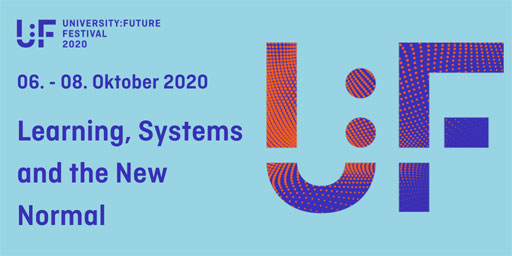The Center for Frugal Innovation at TUHH has initiated an empirical research project to investigate the potential of “affordable and sustainable excellence” in German Healthcare, especially in terms of its potential adoption, likely challenges, and suitable strategies. The project is being carried out in cooperation with the Hochschule Fresenius and builds on our long history of researching frugal innovations in the healthcare sector, see e.g. “Frugal Innovations for a Healthy Society – Learnings for India and Germany”.
Continue readingAuthor Archives: Rajnish Tiwari
Fokusgruppen zu frugaler Medizintechnik im deutschen Gesundheitswesen
Datum: 8. Juli 2025 | Ort: TU Hamburg (Räumlichkeiten des NIT)
Hintergrund
Frugale Innovationen – also kosteneffiziente, zweckmäßige Lösungen mit hoher Funktionalität – haben in einzelnen Bereichen der Medizin bereits an Bedeutung gewonnen. Das MAC 400 von GE HealthCare gilt als frugale Innovation im Bereich EKG, da es ein robustes, kosteneffizientes und portables Gerät ist, das speziell für ressourcenarme Umgebungen entwickelt wurde und dennoch klinisch verlässliche Diagnostik ermöglicht. Auch im deutschen Gesundheitswesen gewinnen sie zunehmend an Relevanz, insbesondere angesichts wachsender ökonomischer und regulatorischer Herausforderungen.

Das Center for Frugal Innovation (TU Hamburg & Hochschule Fresenius) plant in Kooperation mit der Leuphana Universität Lüneburg einen praxisnahen Fokusgruppen-Tag, um den Einsatz und die Akzeptanz frugaler Medizintechnik in Deutschland zu erforschen und zu diskutieren. Die Studie wird als Teil eines Forschungsprojektes zur Ermittlung der Akzeptanzfaktoren frugaler Innovationen von der Hochschule Fresenius gefördert.
Ziel
Ziel ist es, in einem eintägigen Format zentrale Akteur:innen entlang der Wertschöpfungskette (Hersteller, Anwender, Institutionen) in einem geschützten Raum zusammenzubringen. Die Ergebnisse fließen in ein Forschungsprojekt ein, das u. a. durch Mittel der Hochschule Fresenius gefördert wird. Sie werden mit allen Teilnehmenden geteilt, in anonymisierter Form unter Einhaltung aller Datenschutz- und Vertraulichkeitsstandards wissenschaftlich aufbereitet und veröffentlicht.
Format
| Uhrzeit | Agenda |
| 09:30 Uhr |
Technische Universität Hamburg, NIT-Gebäude (Raum
E. 26) Kasernenstraße 12, TUHH Campus, Gebäude F, 21073 Hamburg |
| 10:00 Uhr | Begrüßung und Impulsvortrag |
| 11:00 Uhr | Fokusgruppe I Anbieter/Hersteller Anwender (z. B. Kliniken, Einkaufsleitungen, medizinisches Fachpersonal)Institutionelle Akteure (z. B. Krankenkassen, Industrieverbände, Politik) |
| 12:30 Uhr | Präsentation und Diskussion der Ergebnisse im Plenum |
| 13:30 Uhr | Mittagessen |
| 14:30 Uhr | Fokusgruppe II Thematische Neu-Konstellationen |
| 16:00 Uhr | Präsentation und Diskussion der Ergebnisse im Plenum |
| 17: 00 Uhr | Abschluss der Veranstaltung und offener Ausgang |
Wichtiger Hinweis: Aus organisatorischen Gründen wurden die Fokusgruppen verschoben. Diese werden zu einem späteren Zeitpunkt nachgeholt.
Optional (nach Wunsch)
Nach Abschluss der Veranstaltung können Teilnehmende auf Wunsch und nach Rücksprache kurze Videostatements oder Podcast-Beiträge leisten, um die erarbeiteten Inhalte medienwirksam zu verbreiten.
Thematische Leitfragen
- Welche Potenziale und Hürden sehen Anbieter und Anwender frugaler Medizintechnik im deutschen Markt?
- Welche Rolle spielen Qualität, Kosten und Regulierung in der Bewertung solcher Lösungen?
- Wie verändert frugale Innovation bestehende Marktstrukturen und Rollenbilder?
- Welche Bedeutung haben dabei ethische Grundhaltungen?
- Welche internationalen Erfahrungen sind für Deutschland relevant?
Mitwirkende & Kontakte
Das Projekt wird getragen von:
- Dr. Stephan Buse (TU Hamburg / Center for Frugal Innovation)
- Prof. Dr. Rajnish Tiwari (Hochschule Fresenius / Center for Frugal Innovation)
- Prof. Dr. Hendrik Müller, Hochschule Fresenius
- Prof. Dr. Pauline Reinecke, Leuphana Universität Lüneburg
Kontakt & Rückfragen:
Gerne senden wir bei Interesse weitere Informationen zu Teilnahme, Ablauf und Ergebnistransfer.
“Frugal Innovations for a Healthy Society – Learnings for India and Germany”
The German healthcare system – which is under pressure on many fronts could benefit immensely from a frugal approach that enables affordable and sustainable excellence. However, there are a number of challenges that crowd-out frugal solutions. These include, but are not limited to, lack of awareness, over-regulation, misplaced financial incentives and mind-set issues, as came to fore during a recent event.
“Frugal Innovations for a Healthy Society – Learnings for India and Germany”: This was the motto for an informative discussion event recently held at the Hochschule Fresenius – University of Applied Sciences (HSF) in Hamburg as a part of the “India Week Hamburg”. The event was held against the backdrop of major problems that the German health care system is facing. Growing patient numbers, a shortage of skilled workers, and exploding costs are burdening more and more hospitals. A core objective was to identify the extent to which frugal innovations, i.e., low-cost “Good Enough” solutions, can alleviate the difficulties. The event was aimed at all stakeholders with an interest in finding new ways to overcome the challenges mentioned above.
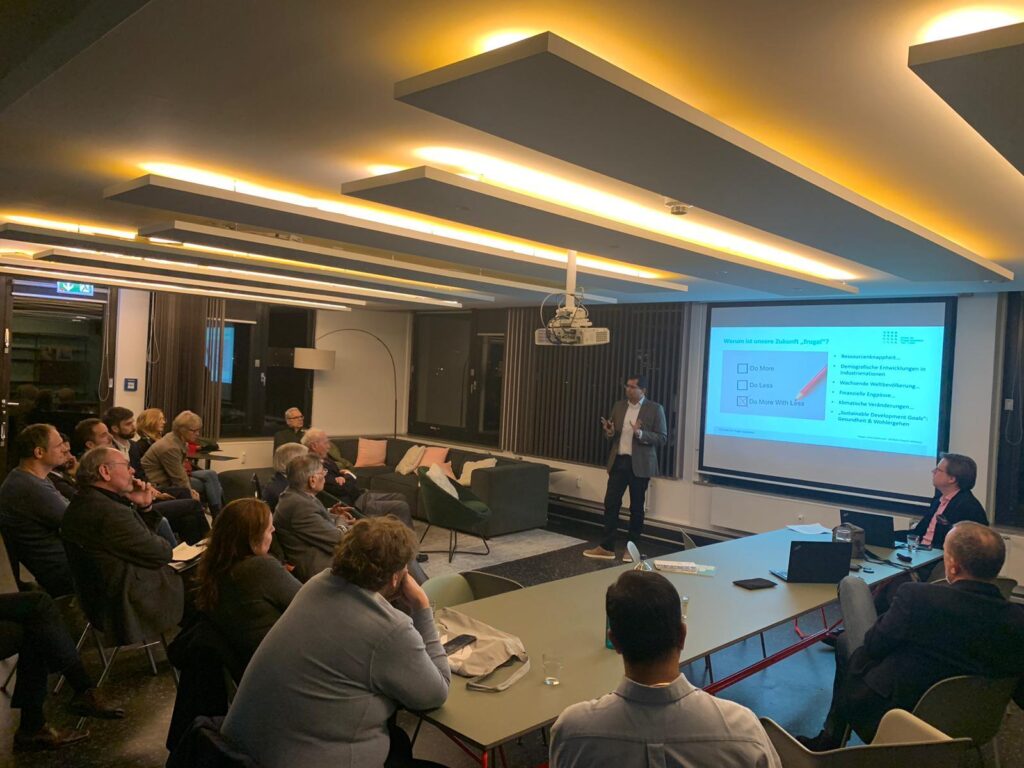
Dr. Philipp Walther, professor for healthcare management at HSF, in his talk illustrated some key challenges facing the German healthcare system. For example, demographic changes are leading to an aging population, necessitating increased and more intense healthcare. Statistics show that three-fourths of the senior citizens in the age group 70-74 years suffer from at least three, if not more, chronic diseases. On the other hand, there is a growing trend of urbanization, leaving rural populations vulnerable in terms of the availability of healthcare infrastructure. Challenges are, however, not limited to the elderly alone. Dietary habits are leading to an increasing share of overweight and even obese children in the society. Prof. Walther, therefore, emphasized the need for encompassing frugal approaches in the entire healthcare value chain to ensure affordable access to appropriate and high-quality healthcare.
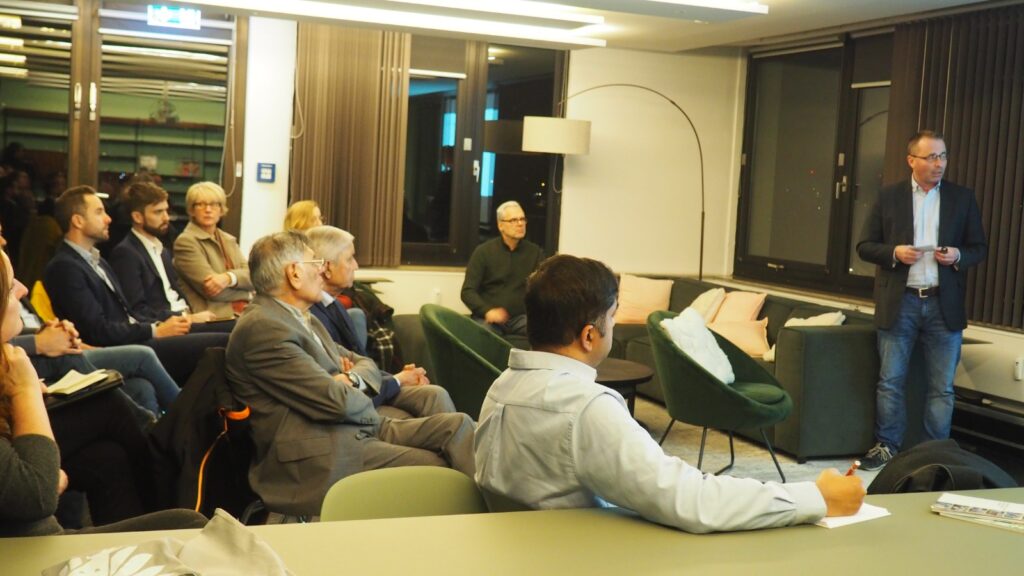
Once the context for affordable and inclusive healthcare was set, the audience was introduced to the concept of frugal innovation by Dr. Rajnish Tiwari, professor for business administration and global innovation at HSF and co-founder of the Center for Frugal Innovation (CFI) at the Hamburg University of Technology (TUHH). In his talk, he defined frugal innovations as enablers of affordable and sustainable excellence that re-question existing innovation paradigms and advocate a clean-slate approach in the search of an efficient and effective utilization of resources. The concept, as advocated by CFI, argues for moving beyond discussions about low vs. high-tech, and rather to look at the appropriateness of a solution in terms of its ability to solve problems efficiently and effectively.
In this context, Dr. Shyam Vasudevarao, Founder and Director of Forus Health, Renalyx and Rx DHP, joined the event live from India and showcased two successful frugal innovations developed by his firms. The first example connected to the need to achieve good health and well-being (SDG #3). Dr. Vasudevarao pointed out that while 80% of the cases of blindness can be prevented if pre-screened, but only 7-10% of the people are actually screened on time. His solution “3Nethra” is an integrated pre-screening device for the broad based detection of eye ailments with a telemedicine interface. The second solution concerned renal care in an affordable and inclusive manner through early detection & identification, which can be very relevant for industrialized societies, including Germany. Both solutions use digital technologies, especially artificial intelligence and cloud computing. His talk showed that there was an excellent match between the frugal approach (preventive and inclusive care, early detection, education & engagement, and affordable treatment) and the needs of the German healthcare system.
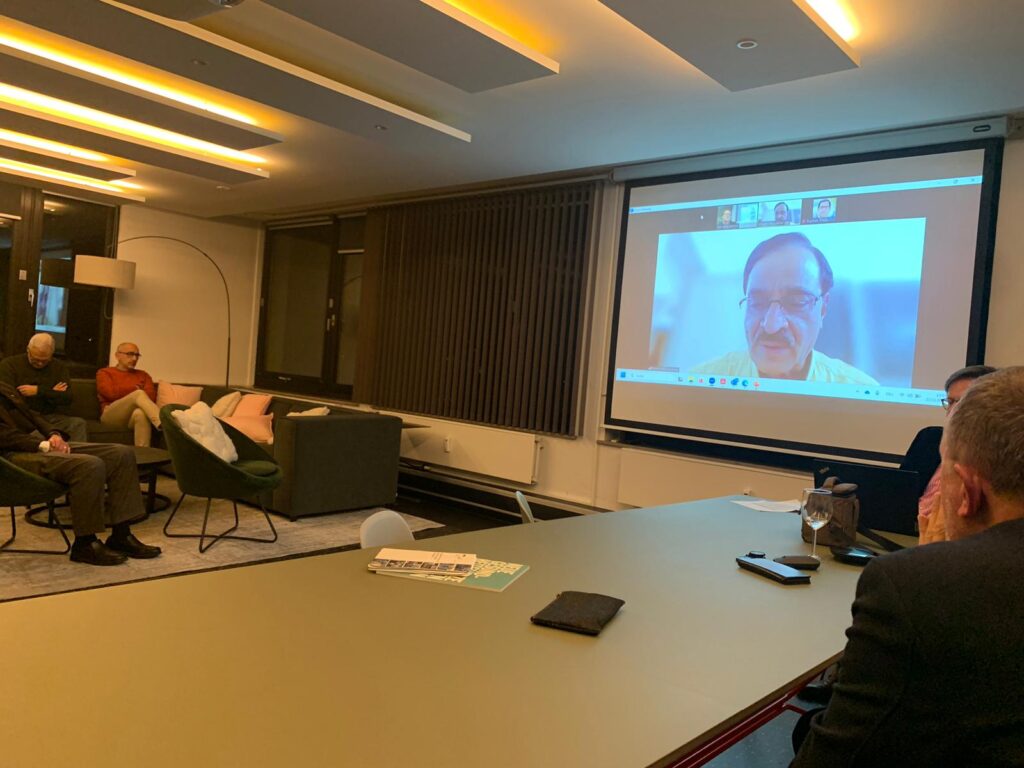
However, a new challenge for bringing frugal innovation to German healthcare institutions was revealed by a study presented jointly by Dr. Stephan Buse, deputy director of the Institute for Technology and Innovation Management (TIM) at TUHH, and by Mr. Tim Kneesch from the University Clinic Eppendorf (UKE) in Hamburg. The comprehensive study found that the concept of frugal innovations is not yet well-known in German hospitals. Furthermore, the study identified some very significant political, economic and psychological hurdles for their acceptance. Some key challenges include prohibitively high regulatory norms and standards, non-supportive existing financial incentives in the systems, a perceived conflict between frugality and sustainability, as well as mind-set issues.
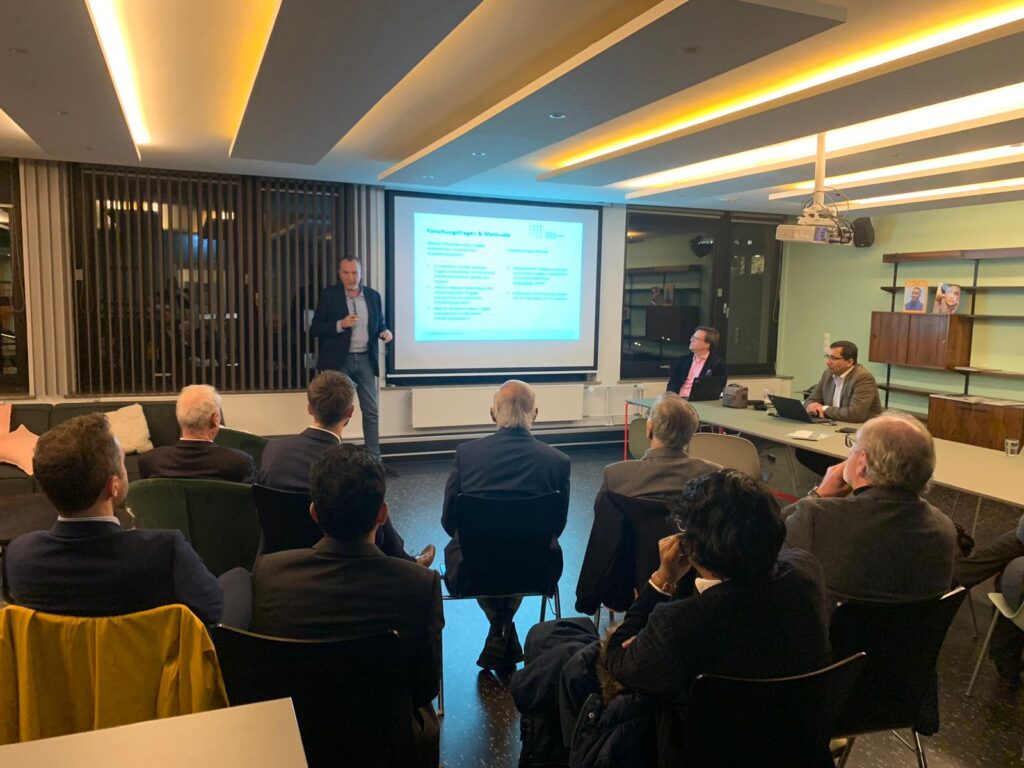
The talks thus set a very fertile ground for a round of discussion moderated by Dr. Hendrik Müller, professor for business ethics at HSF. The panelists included Mr. Fridjof Stuck, Head of Medical Technology at UKE Hamburg, and Mr. Enrique Dorn Schohaus, Head of R&D at 3B Scientific, in addition to Dr. Stephan Buse, Mr. Tim Kneesch, and Dr. Philipp Walther. The panel discussion provided for a very engaging discussion with pro and contra arguments. It brought to the fore the interesting situation that while there is an acknowledged need for ensuring high affordability in the healthcare sector in Germany, the current status-quo tends to crowd-out frugal solutions. Part of the problem also seems to lie with regulatory and quality standards that raise the bar “too high” (in some cases even unreasonably so),thus sometimes scuttling unconventional innovative solutions. Ensuring a match between quality aspirations and frugality is a challenge that the stakeholders will have to take up. Furthermore, the event showed that the understanding of frugal innovations needs to go beyond the technical paradigm and has to include frugal ways of living.
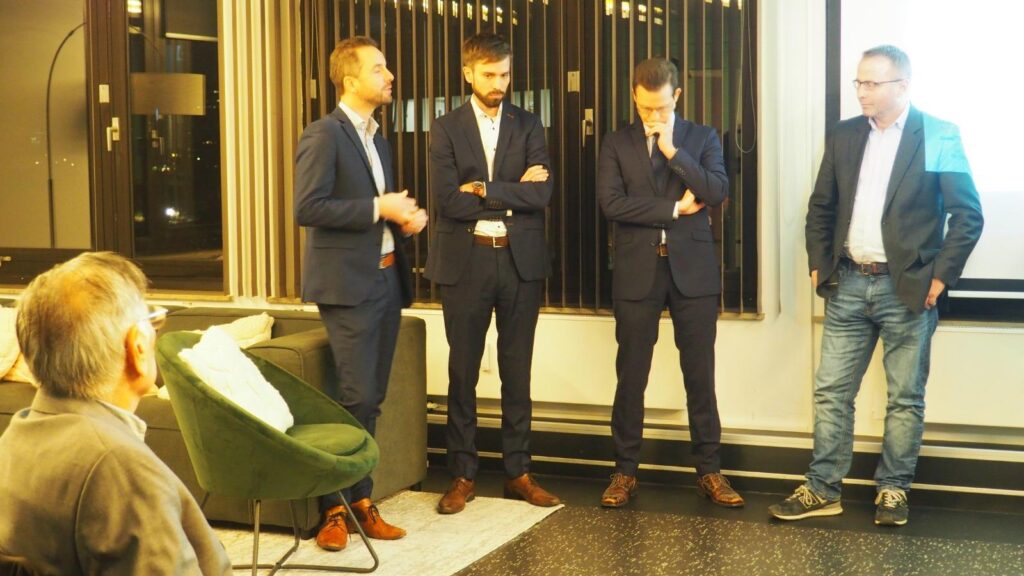
HSF and CFI have decided to further pursue these challenges in cooperation and further engage the relevant stakeholders from industry, research and governments in order to continue exploring avenues for building bridges between German healthcare and frugal solutions, as both, the need and the compatibility, were brought unmistakably to the fore by this event, which was attended by about 25 participants from the relevant sector.
The event was organized in cooperation with the Center for Frugal Innovation TU Hamburg and German-Indian Round Table Hamburg. It was supported by Life Science Nord and the Consulate General of India in Hamburg.
Invitation to join online workshop: “Lifelong learning in the age of digital transformation”
TIM-TUHH invites all interested persons to an online workshop on Friday 15 Oct. 2021 (11:00 – 12:30 hours CEST) on the theme of “Lifelong learning in the age of digital transformation: Chances and challenges for institutions of higher education”. The workshop is a part of the Erasmus Days 2021. A direct registration link is here.
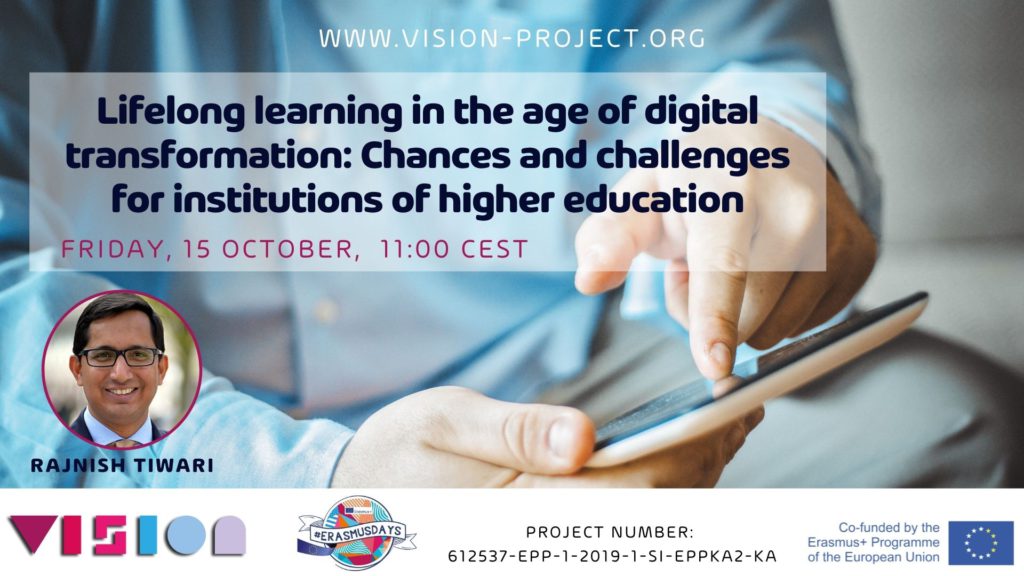
This online session which will be moderated by Dr. Rajnish Tiwari from Hamburg University of Technology (TUHH) is concerned with the disruptive opportunities and challenges that digital transformation brings to higher education institutions. Based on insights generated in the VISION project, funded by the European Union, we will share our results and discuss with the invited speakers and participants the following issues:
- How can institutions of higher education turn disruptive challenges into promising opportunities?
- How can the requisite competencies for creativity, innovation and entrepreneurship (CIE) be imparted to those that need it the most efficiently and effectively?
- How can we use the approach of frugal innovation (“affordable green excellence”) to enable lifelong learning and mitigate the global societal challenges by ensuring social inclusion?
In addition to the presentation of project results by Dr. Rajnish Tiwari, the workshop will be enriched by sharing of insights and experiences by the following three invited speakers representing different contexts:
Continue readingDigital Transformation in Education: The what, why and how
TIM-TUHH participates in BarCamp Pitch at UNIVERSITY: FUTURE FESTIVAL 2020
Digital transformation is changing the way education takes place. Changes are comprehensive and affect the entire process of learning, teaching and auxiliary support including at home. In this session at UNIVERSITY: FUTURE FESTIVAL 2020 (“Learning, Systems and the New Normal”), we will present findings of our ongoing study on the changes that the education sector is undergoing, including their “why” and “how” aspects.
The session will begin with the presentation of the results of expert interviews by Dr. Rajnish Tiwari. The interviews have been conducted under the VISION project that has been funded by the European Commission. In an interactive setting, participants will emulate a focus group discussion and deliberate upon the results and formulate implications.
When: Tuesday, 6 October 2020, 11:45 – 13:15 CEST
Register for joining us: https://festival.hfd.digital/en/
Find out all about the event at https://festival.hfd.digital/en/programme/barcamp-day/
VISION project: https://www.vision-project.org/

For further information contact: Dr. habil. Rajnish Tiwari (tiwari@tuhh.de)

